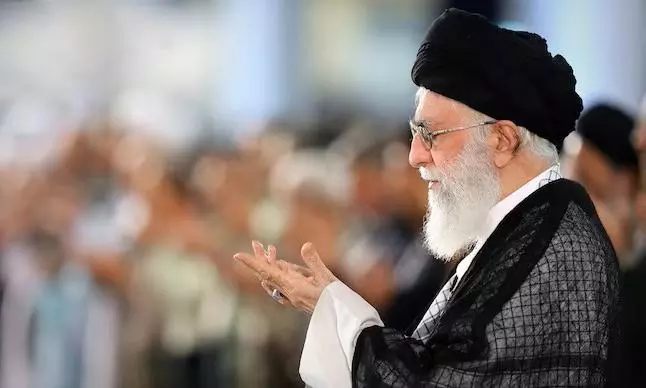
Khamenei’s appearance defies Israel’s claim that deep hiding avoided assassination
text_fieldsIran’s Supreme Leader, Ayatollah Ali Khamenei was seen in videos making public appearances, contradicting the claim made by Israeli Defence Minister Israel Katz that the failure to assassinate him during the 12-day conflict that concluded this week was due to Khamenei going into deep hiding and severing contact with his top generals to evade Israeli strikes.
Katz has said that the country intended to assassinate Iran’s Supreme Leader Ayatollah Ali Khamenei during the 12-day conflict that concluded this week, asserting that Israel would not have required approval from the United States to carry out the operation and suggesting that Khamenei had gone into deep hiding to evade Israeli strikes.
Katz, speaking amid reports that Washington may have vetoed such an operation, said there was no opportunity to execute the plan, even as he claimed Khamenei had severed contact with his commanders, some of whom had replaced Islamic Revolutionary Guard Corps leaders killed in the initial phase of Israeli bombardments, according to Al Jazeera.
Although Khamenei continued to appear in video addresses during the war and no independent verification has emerged regarding his isolation from top military officials.
The assassination of Khamenei would have constituted a grave escalation in the confrontation, given his dual role as Iran’s de facto head of state and the highest religious authority for millions of Shia Muslims across the globe.
The war had begun with coordinated Israeli and US strikes on Iranian nuclear sites at Fordow, Natanz and Isfahan, with Katz insisting that Israel now had a “green light” from former US President Donald Trump to mount another offensive should Iran attempt to rebuild the damaged nuclear infrastructure, while Iranian officials maintained that Washington had exaggerated the extent of the damage.
As reports emerged of conflicting assessments regarding the destruction inflicted on Iran’s nuclear capabilities, Khamenei declared that the strikes had failed to cripple Tehran’s strategic programmes, while Netanyahu claimed that the campaign created diplomatic momentum for fresh agreements with Arab states under the framework of the Abraham Accords.
The war concluded after Iran launched a retaliatory missile attack on Qatar’s Al Udeid Air Base, which hosts American troops, prompting Washington to push for a ceasefire and leading both Israel and Iran to declare victory, with Tehran asserting that it had resisted Israeli attempts to dismantle its nuclear and missile programmes, while Israel hailed its military performance and the strategic opportunity it created.

















